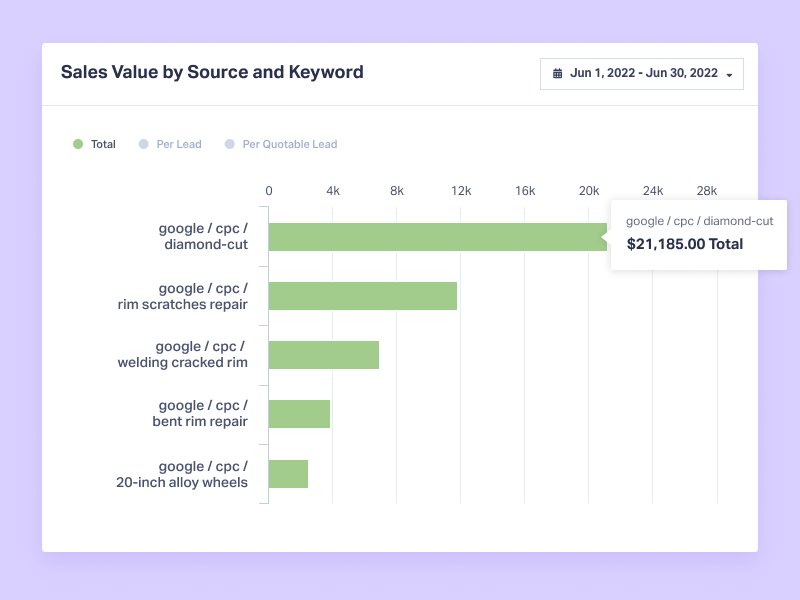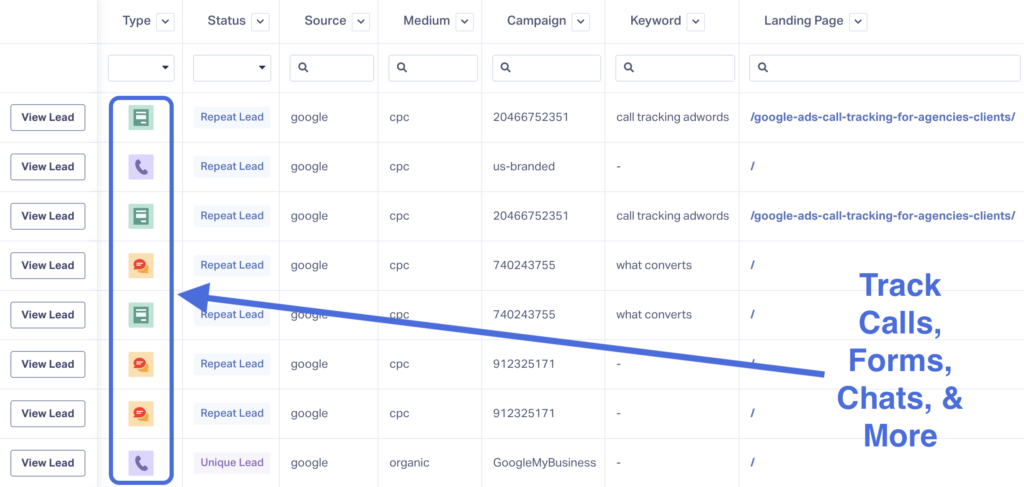
This is a guest post from Fahad Zahid, founder of Social Gravity.
In the marketing world, lead tracking can make or break your campaigns. Especially for service-based businesses, where the decision-making process is longer, tracking leads properly means not just knowing how many people are interested but understanding why they are interested, where they come from, and how to convert them more effectively.
This article will walk you through five most effective lead tracking methods, illustrated with real examples from our own experience at Social Gravity.
Why Lead Tracking Matters for Service Businesses
Imagine you run a home services business. Someone clicks on your ad, visits your website, but doesn’t book right away. Maybe they call you a week later or fill out a form after reading one of your blog posts. Lead tracking is how you connect all those touchpoints, so you know what’s working and what’s not. This gives you the ability to:
- Evaluate Marketing ROI: Prove which campaigns are truly effective and justify your spend.
- Optimise Marketing Spend: Pinpoint the strategies that bring in the best leads at the best price.
- Improve Customer Journey: Understand how leads interact with your business and where they may be dropping off.
Lead tracking is a game-changer for service businesses because it helps you make data-driven decisions to fine-tune the entire customer journey—from first touch to final booking. Let's look at some tried and tested best practices to make it happen.
Resource: What Is Lead Tracking & How Does It Improve Your Marketing?
1. Use an Integrated Lead Tracking Platform
To maximise the efficiency of your lead tracking, start with an integrated lead tracking platform.
Why is this important?
- It helps you capture all lead interactions in one place.
- You can attribute leads to specific marketing campaigns, giving you valuable insights into what works best.
WhatConverts is an example of a lead tracking solution that can help marketers connect their campaigns to actual results. It enables marketers to evaluate where leads are coming from, assign a value to each lead, and accurately connect marketing actions to real return on investment (ROI).
Consider these questions when evaluating a lead tracking platform:
- Does it provide a clear overview of all lead data in one place?
- Does it allow you to attribute each lead to a specific marketing campaign?
- Can it integrate with the tools you are already using?
Tip: Make sure to choose a platform that aligns with your specific marketing needs, such as capturing phone calls, online form submissions, or even offline activities.
2. Track and Qualify Leads Effectively
Not all leads are created equal. Some are ready to convert, while others need nurturing. The key to effective lead tracking lies in not just capturing leads, but also qualifying them effectively.
How to qualify leads?
- Identify key criteria, such as engagement level, inquiry type, or urgency.
- Focus on leads that fit your ideal customer profile for better efficiency.
For instance, using lead qualification practices, you can prioritise the leads with the highest intent to purchase, ensuring your sales team spends time where it matters most.
Qualify leads by clarifying:
- What are the indicators of high-quality leads for your business?
- Are there specific questions or actions that determine their level of interest?
Tip: Adding specific qualification steps can help save time and resources by focusing only on the leads most likely to convert.
Resource: How to Use Lead Qualification to Optimize Your Marketing
3. Utilise Call Tracking for Lead Insights
Phone calls are often the most valuable lead source for service businesses. If you aren’t tracking where those calls are coming from, you’re missing a huge piece of the puzzle.
Call tracking helps you understand which marketing campaigns lead to phone inquiries, giving you insight into which campaigns are generating high-quality leads.
For example, one of our roofing clients used call tracking to discover that their Google Ads were driving the majority of their high-value calls. This allowed them to adjust their budget towards high-performing keywords.
Why use call tracking?
- It helps identify the best-performing campaigns.
- Allows you to understand which channels bring in the most valuable leads.
Tip: Implementing call tracking can give you the deep insights needed to effectively allocate your marketing budget.
4. Automate Your Lead Management Process
Automation is key when it comes to managing leads effectively. Why? Because it helps ensure that no lead falls through the cracks.
What can you automate?
- Assigning leads to your sales team.
- Sending follow-up emails to nurture leads.
- Setting reminders for the next steps in the sales process.
At Social Gravity, we automated lead management through CRM tools to ensure that every lead was promptly contacted and followed up with. This approach led to impressive results, increasing lead conversions from 25 leads a month to over 290 leads per month.
Tip: Use automated CRM tools to connect your lead tracking data directly with your sales processes for more streamlined management.
Resource: Lead Intelligence – Automate Your Lead Qualification, Valuing, & Management
5. Regularly Analyse and Optimise Lead Tracking
Lead tracking isn’t a one-time setup—it requires continuous monitoring, analysis, and adjustment. Regular analysis helps you identify the high-performing campaigns and where adjustments need to be made.
What to analyse?
- Are you generating the volume of leads you need?
- Are the leads converting into sales at a reasonable rate?
- Are there areas where you could reduce costs and improve efficiency?
We regularly analyse lead data to ensure that campaigns are consistently performing at their best. Often, small optimisations can yield significant improvements in ROI. Regular reviews allow us to adjust strategies and ensure our clients are getting the best results possible.
Tip: Set a schedule to review your lead tracking data—weekly or monthly reviews are a good starting point. This will help you stay on top of performance and quickly identify areas for improvement.

Wrapping Up
Tracking leads effectively is a non-negotiable for service business marketing. By following these best practices—using an integrated lead tracking platform, qualifying leads, utilising call tracking, automating lead management, and regularly analysing and optimising—you can ensure that your marketing efforts always contribute to real business growth.
Want to boost your marketing ROI? Take a structured and strategic approach to lead tracking like the examples mentioned above and see consistent, measurable success.
Optimize your marketing and keep clients happy with a free 14-day trial of WhatConverts!
Get a FREE presentation of WhatConverts
One of our marketing experts will give you a full presentation of how WhatConverts can help you grow your business.
Schedule a Demo
Grow your business with WhatConverts






